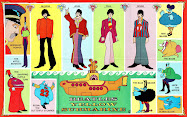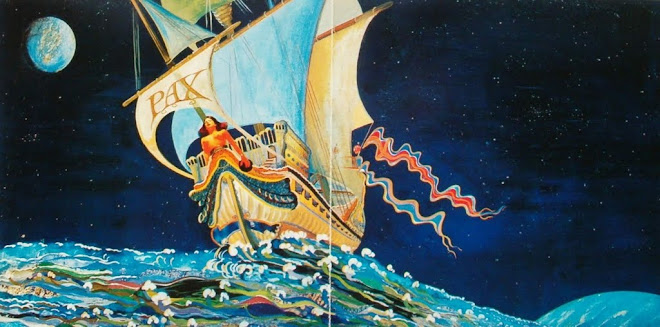Another insight from Eric Rhoads of RADIO INK magazine.
Why radio shouldn't remain cocky
A message from Radio Ink Publisher Eric Rhoads
The opening bell clanged as executives Tim Westergren and Joe Kennedy and investors stood high atop the stock market floor for the IPO launch of Pandora.
It's an exciting day. As one who was an early player in the Internet radio space (RadioCentral Networks), I exited the Internet radio game about the time Pandora was starting, 11 years ago. It's fun to see an Internet radio startup launch an IPO.
Though Pandora's stock (NYSE ticker symbol: P) debuted strong at a 40 percent increase (at this writing), the reporters at CNBC were pressing for answers: "How is Pandora going to make money?" CEO Joe Kennedy repeatedly responded that Pandora is building a long-term business and focusing on the listener experience. The reporters would not let up, asking the same question 20 different ways, trying to get an answer. Kennedy continued to talk about how Pandora has 3 percent of all radio listening and that its intent is to grow because radio listening is strong, making up 80 percent of all music listening. But the reporters kept asking Kennedy and other executives to show them the money. Not once did anyone say Pandora plans to make money. It was like a retro repeat of the dot-com boom days, when no one cared about making a profit.
As of today, Pandora investors have put $91 million into the company, and no profit has been made, even with a claimed 90 million registered users. Unlike the traditional radio model, which has 40-50 percent margins and is not penalized in royalties for every listener it adds, Pandora has to pay bandwidth fees for every minute of streaming and artist royalties for every listener to every song it plays. Pandora must find a way to make money without growing its listening base, which means more paid subscribers, like Sirius XM, or more ads. Of course, the relative lack of ads is a big consumer attraction to Pandora.
So where is the secret sauce? Why are serious investors putting big money into Pandora? Because they believe in the strength of the radio business and they believe the core premise of pushing radio programming via transmitters is flawed for the future. They are betting on consumers and advertisers falling out of love with terrestrial radio. They are betting that radio will cling to the world it has always known and won't make the digital shift required to please advertisers and consumers, and that, like newspapers, radio won't be able to survive without cannibalizing itself. These investors are expecting that radio, like so many other non-digital businesses, will experience a sea change in its business model once connectivity -- and Pandora -- become ubiquitous in homes, mobile devices, and cars. They expect terrestrial radio to go the way of travel agencies and film for cameras.
I once attended a function with a group of Silicon Valley venture capitalists where an investor in Facebook was asked about revenues. He responded, "We'll worry about that later. Our primary goal is to build a strong and loyal base of users." Though I wanted to snicker, I also knew there was some sense in what he was saying. After all, most of the radio industry snickered when XM and Sirius emerged. I cautioned radio to not be overconfident or flip about satellite radio while we were saying people wouldn't pay for the service, nor would satellite make any money on advertising. Yet Mel Karmazin has made the company profitable and had top-line revenues of $2.8 billion in 2010, just ahead of Clear Channel.
Though I recently made the point that Pandora is not radio, looking primarily at the differences terrestrial radio should be focused on since Pandora can do a better job at commercial-free music, I don't think our industry should write it off as a fad or a fluke. Pandora is about to ramp up, is opening local sales offices in your market (just like Google, Yahoo, Groupon, and LivingSocial have), and plans to capitalize on its popularity to bring advertisers on board. Though we can defend our position with statistics, we must not forget that all buying decisions have an element of emotion, especially at the local level.
A year ago my eyes were opened at a local community street fair when three bright green Groupon vans pulled up and about 20 college kids in Groupon shirts started handing out prizes. It was an eye-opener that an Internet company was penetrating locally and doing radio-like street promotions. We also must not forget that Pandora can make money on things other than audio commercials, like player ads and direct marketing to its user base. Why not compete with Groupon? What if Pandora starts doing radio-like promotions in local markets like Groupon is doing?
Though it's tempting to grunt about how radio is strong and will always be strong and how Pandora will be like so many other fad products that challenged radio, I'm also a realist. Pandora is funded by some of the smartest investors in Silicon Valley. These investors are used to hearing people laugh and ask how they plan to make money, yet they usually figure it out.
I may have been 10 years too early into the online radio business, but I still believe that radio must not ignore the challenge that online radio may someday become a real competitor. Jerry Lee may be right that he cannot monetize streaming radio today, and it may not be reasonable for terrestrial radio to expect to make money on streaming. But that's assuming nothing changes. Like all other industries impacted by the digital world, we may someday see a shift.
At the root of all of this is the fact that radio is strong and everyone wants to take a piece of our revenues. When everyone is targeting you, it's easy to get cocky and say, "They all want to be radio, but they'll never figure out how to steal it from us." Yet my belief is that when smart people are after you, there is a chance they will find your vulnerabilities and find a way to take away your golden goose.
A little paranoia is healthy. Being proactive is smart business, just like it's smart not to ignore a new competitor entering the market. Radio's new competitors are hoping you'll ignore them and remain confident that radio can't be touched. That's all the more reason radio needs to stick to its knitting and make sure we as an industry continue to serve our listeners with what they want. It's why we must continue to be entertaining, engaging, and locally involved. Those key factors built our loyal audiences, and it will be those factors that keep them loyal. But we also must continue to innovate and play hard so we can compete in a digital world. Being cocky and not paying attention is how we could allow others to take away our dominance. Others, like Pandora, are counting on it.
Eric Rhoads
Radio Ink
Thursday, June 16, 2011
Subscribe to:
Comments (Atom)









.jpg)


